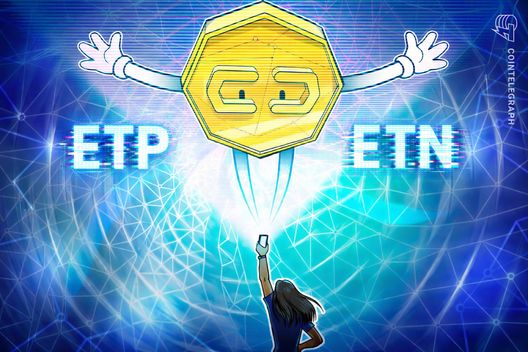In the ever-evolving landscape of cryptocurrency, exciting developments and pivotal changes are taking place, shaping the future of blockchain technology. This week’s edition of The Protocol by CoinDesk highlights significant milestones across various networks, including Solana’s groundbreaking Alpenglow upgrade, Ethereum Foundation’s strategic asset sales, and a transformative proposition for Bitcoin’s coding. As the digital currency ecosystem continues to expand, a deeper exploration of these stories reveals both the technological innovations and the ongoing challenges faced by developers and investors alike.
Solana’s Alpenglow Upgrade: A New Dawn
In a historic decision, the Solana community voted with overwhelming support for the Alpenglow upgrade, reflecting a remarkable commitment to technological advancement within the network. With 98.27% of stakers approving the proposal, this upgrade is set to revolutionize transaction finality and enhance overall network efficiency, enabling a smoother user experience in decentralized applications.
Ethereum’s Strategic Moves
The Ethereum Foundation announced plans to liquidate 10,000 ETH as they adjust their financial strategy to fund ongoing research, development, and ecosystem initiatives. This decision follows previous asset sales, showcasing a proactive approach to manage resources while supporting the growth of Ethereum’s ecosystem.
A Game-Changer for Bitcoin: The OP_CAT Proposition
Bruce Liu, from OPCAT_Labs, advocates for re-enabling the long-disabled OP_CAT opcode in Bitcoin’s code, presenting a vision for transforming the blockchain into a more versatile financial tool. By unlocking new capabilities for developers, OP_CAT could elevate Bitcoin’s functionality, allowing it to compete with other smart contract platforms like Ethereum and Solana.
The Transition of Ethereum’s Testnets
Meanwhile, Ethereum is preparing to phase out its largest testnet, Holesky, following the upcoming Fusaka upgrade. This transition reflects a necessary evolution in Ethereum’s testing framework, aiming to enhance scalability and efficiency amid increasing network demands.
As the cryptocurrency sector continues to mature, these announcements mark vital progress, highlighting the dedication of blockchain communities to innovate and adapt in a rapidly changing environment.

Key Developments in Cryptocurrency Technology
Here are the most important aspects from the latest updates in cryptocurrency technology:
- Solana’s Alpenglow Upgrade:
- 98.27% approval from SOL stakers for the historic consensus overhaul.
- Reduces transaction finality time from over 12 seconds to approximately 150 milliseconds.
- Enhances network efficiency and scalability, which could benefit decentralized finance (DeFi) and blockchain gaming.
- Ethereum Foundation’s ETH Sale:
- Plan to sell 10,000 ETH to support research, development, and ecosystem grants.
- Approximately $43 million expected from the sale, affecting market dynamics.
- OP_CAT and Bitcoin Development:
- Bruce Liu advocates for re-enabling OP_CAT, potentially transforming Bitcoin’s utility.
- This change could allow Bitcoin to function like programmable money, competing more effectively with Ethereum and Solana.
- Closure of Holesky Testnet:
- Major Ethereum testnet to be shut down following the Fusaka upgrade.
- Holesky had encountered issues impeding its effectiveness as a testing ground.
- Galaxy Digital’s Tokenized Stock:
- Tokenizing Class A common stock on the Solana network, blending traditional equity with blockchain advantages.
- This move could influence how stock trading is conducted, enhancing liquidity and access for investors.
- European Regulatory Developments:
- ECB President calls for strict regulations on foreign stablecoins to safeguard EU markets.
- U.S. government utilizes blockchain to disseminate economic data for increased transparency, potentially setting a precedent for future data handling.
The advancements and regulatory actions in cryptocurrency technology may significantly impact how users, investors, and developers engage with digital assets, influencing market availability, investment opportunities, and the overall functionality of blockchain systems.
Comparative Analysis of Recent Developments in Cryptocurrency
The latest edition of CoinDesk’s The Protocol presents significant updates from the cryptocurrency tech domain, highlighting pivotal changes in projects like Solana and Ethereum, as well as discussing potential enhancements within Bitcoin. The solid majority vote on the Solana Alpenglow upgrade signifies a community deeply engaged with its network’s evolution, presenting a competitive edge as it aims to optimize transaction times drastically. In comparison to Ethereum’s recent decision to liquidate 10,000 ETH, this proactive approach by Solana may attract developers and users looking for a more efficient platform, amplifying its position in the DeFi and blockchain gaming niches.
However, the Ethereum Foundation’s planned ETH sale could indicate a strategic shift, allowing the ecosystem to foster continued development despite the market fluctuations. While this move may secure funding for essential research and grants, it casts a shadow over investor confidence as large sales could potentially lead to price instability. Ethereum’s emphasis on sustainability and community-driven upgrades, as evidenced by the phased rollout of the Fusaka upgrade—despite the impending sunset of the Holesky testnet—shows a willingness to adapt long-term strategies over short-term gains.
Conversely, Bruce Liu’s advocacy for reactivating the OP_CAT opcode in Bitcoin illustrates an ongoing friction between legacy systems and emerging needs for programmability. The persistent challenge for Bitcoin in remaining competitive with chains like Solana and Ethereum, which continuously adapt to market demands, could hinder its standing unless significant changes are embraced. The diverse nature of these projects raises questions on who the winners might be; developers and users seeking enhanced functionalities might flock to platforms that embrace such upgrades.
In terms of tokenization, Galaxy Digital’s initiative to tokenize Class A common stock on the Solana network through collaborations with Superstate positions it as a pioneer in integrating traditional finance with blockchain technology. This venture could lead to increased liquidity and more favorable trading conditions for investors, while also placing pressure on competitors to catch up or face potential obsolescence. Conversely, Ondo Finance’s tokenized equity offering targets non-U.S. investors, which could limit its domestic growth but provide significant advantages in international markets where such access is increasingly demanded.
With these developments, the landscape of cryptocurrency tech is poised for rapid evolution. Stakeholders across various platforms may find themselves either benefitting from these advancements or navigating the challenges they pose in an ever-competitive environment.

















